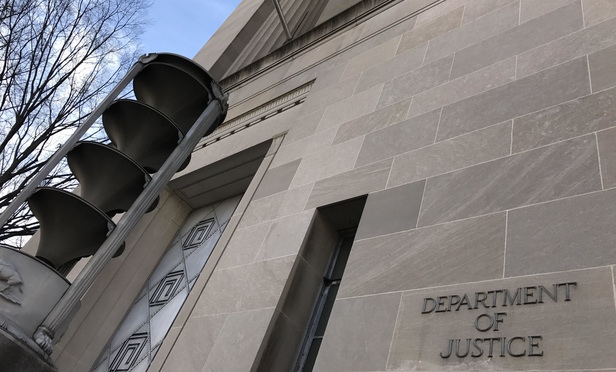The DOJ introduced the program in April 2016, saying it would provide prosecutors and corporations a clearer understanding of what it offers a company that voluntarily discloses its wrongdoing, fully cooperates with an investigation, and institutes remedial compliance measures.
The top prize is a letter from the DOJ saying it is declining to prosecute the violation. But a declination letter is not guaranteed.
Steven Tyrrell, managing partner of Weil, Gotshal & Manges’ Washington, D.C., office and head of the firm’s white-collar defense and investigation’s group, said Weissmann’s numbers do not surprise him.
“The program offers companies an opportunity to avoid prosecution with declination by DOJ,” Tyrrell said. “And that is a significant incentive for voluntary disclosure. It is especially significant for a public company” that may want to avoid the stigma of a prosecution, he said.
Jason Linder, the new head of the global investigations and anti-corruption practice in the Los Angeles office of Irell & Manella, also was not surprised. But Linder, who spent nearly 10 years as a federal prosecutor including as senior trial attorney in the DOJ’s FCPA unit, cautioned that the sample size was too small for strong conclusions.
“That said, the goals of the pilot program are to provide companies with more, and more transparent, incentives to disclose misconduct voluntarily, cooperate fully with government investigations, and remediate misconduct and controls failures uncovered during an investigation,” Linder said.
“These numbers may well indicate that the pilot program is achieving the ends for which it was created.”
The pilot program also may be achieving another end–it fits nicely with the DOJ’s announced efforts to speed up FCPA investigations. Trevor McFadden, the DOJ Criminal Division’s deputy assistant attorney general, said at a conference in Washington, D.C., last month that prosecutors are committed to wrapping up old FCPA cases and investigating new ones more quickly.
The average FCPA case takes more than four years to resolve, and at least one, Wal-Mart Stores Inc., has been lingering for nearly six years. But various news reports have said a settlement in the Wal-Mart case is imminent, perhaps this week or next.
In the past year the DOJ has publicly declined prosecution in five cases in which companies voluntarily disclosed violations and posted the details online as examples. Weissmann’s 22 cases do not include these five, in which disclosures came before the pilot program started.
Weil’s Tyrrell, who headed DOJ’s fraud section from 2006-2009, represented one of the five companies, Texas-based HMT LLC. The private manufacturer of storage tanks received its declination letter and a nonprosecution letter last Sept. 29.
Tyrrell said he does not automatically advise companies to voluntarily disclose a violation. “It always depends on the specific facts and circumstances of each situation,” he added.
Linder agreed, saying such a decision is “incredibly fact- and situation-specific.”
Copyright The National Law Journal. All rights reserved. This material may not be published, broadcast, rewritten, or redistributed.




